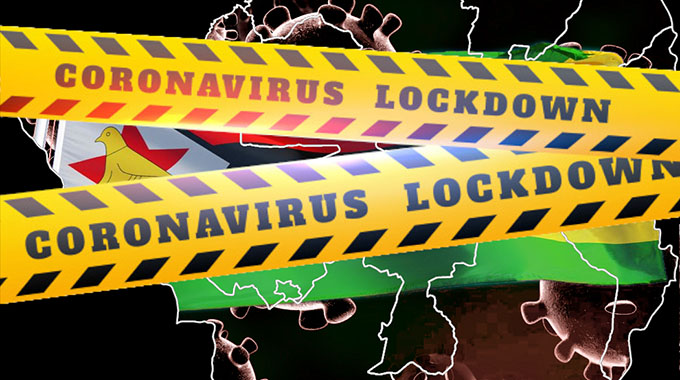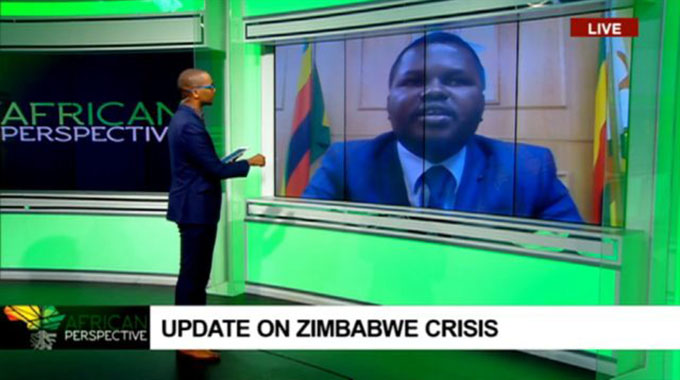Editorial Comment: Covid-19: Balancing personal freedoms

As President Mnangagwa noted the last time he addressed the nation on Covid-19, the measures needed to slow or prevent infection do limit some of our rights, and in particular the rights of assembly, movement and even of earning a living without hindrance.
This is permitted in the Constitution, which makes it clear that under certain circumstances, and public health reasons are specifically mentioned, constitutional rights can be limited, with the explicit and implicit provisos that these limits are required to cope with the specified need and that “the limitation is fair, reasonable, necessary and justifiable in a democratic society based on openness, justice, human dignity, equality and freedom, taking into account all relevant factors”.
This means that the limits imposed on freedom must be the minimum required to cope with the problem, and probably means that the gains of the limitation must outweigh any potential losses.
Since Covid-19 has been declared a global pandemic by the World Health Organisation, and since the death rate in Zimbabwe appears to be hovering between 2 percent and 3 percent of confirmed cases, the measures, introduced using the Public Health Act are reasonable, although a lot of people might find them irksome and a fairly large minority might feel that the gains, which could be life itself, are not worth the losses of income or freedom of movement and assembly.
This has come up in several jurisdictions, and is one reason why the infection rates and death are higher in the US, for example, than in other countries with a similar economic and social standing.
More Americans than most people feel that the greater risks of dying are a price worth paying.
The Zimbabwean experience has produced, as has been seen in many other countries, that greater inroads into freedoms are necessary to protect everyone that would be the case if all Zimbabweans were ready to follow rules fully.
One example is the mask rule. We all have to wear these in public. But, if we were all sensible and willing to be unselfish and willing to obey social distancing rules and the like, it would be quite easy to have a rule that a mask was to be worn only when we were within say 3 metres of another person.
But that would be impossible to enforce if anyone wanted to argue because evidence would be difficult to gather. So we need the stricter rule.
At the edge of the rights debate was a recent High Court application seeking to have courts hearing a remand or a bail application to continue sitting after the 3pm deadline set in the lockdown rules, and by implication removing those involved in those two types of hearing from the curfew requirements.
The application was dismissed at the start because defence lawyers forgot that they were not a principal in a court hearing, but rather the mouthpiece of a principal, their client.
But it is fairly easy to see how the arguments might have gone had the paperwork been correct.
On one side there are constitutional rights to an early appearance in court after an arrest and a right to bail once conditions are agreed that make negligible the risks of flight, interference in investigations and repeating the offence.
So the 3pm closure might, on one side, keep a person in a cell for an extra night. On the other side there would be a fair number of people open to greater infection risk, starting with the magistrate, accused, prosecutor and defence lawyer at the actual hearing, then at least three prison service officers who would have to be available, plus the police providing security for the court and the court complex, plus the filing clerk waiting for the return of the relevant file, plus, probably, a number of friends and relatives in the car park.
It would have been an interesting call, especially as the Judicial Service Commission has already acquiesced in this rule.
But there were other solutions. For a start there is the administrative solution of simply ensuring those arrested are brought to court earlier in the day.
For bail hearings presiding officers have mentioned the need for defence lawyers to be willing to help the court in setting bail conditions that will achieve the aim of the accused appearing in court when required, not inferring with the investigation or the witnesses and not committing another offence while on bail.
While magistrates and judges have a pile of precedents to help them draw up conditions it should be obvious that a good defence lawyer can help by being creative in the particular circumstances of their client.
One of the most spectacular examples of this was in the late 1980s when two foreigners on business in Zimbabwe were implicated, wrongly it turned out later, in a murder.
Their ambassador offered to hold the pair in the guest wing of his official residence and renounce diplomatic immunity for that residence to the necessary extent of letting the police keep tabs on the two. That really impressed the judge.
But an early start to the court appearance and a defence lawyer ready to speed up the bail application by having a decent offer at hand that is reasonable in the circumstances and decisions can be made before 3pm.
This allows both the individual rights of the accused person, and the community rights of everyone else to a low risk environment, to be met without conflict.
With the possible exception of freedom of conscience, all other freedoms have some limits, basically to ensure that the rights of others are not trampled when you exercise your rights.
This is why if you scream fire in a crowded room when there is no fire and panic-stricken people get injured, you cannot claim freedom of speech.
So there is always a balance to be drawn. And in a public health emergency that balance changes, since the others have their rights to life and rights to lower risks of infection.








Comments